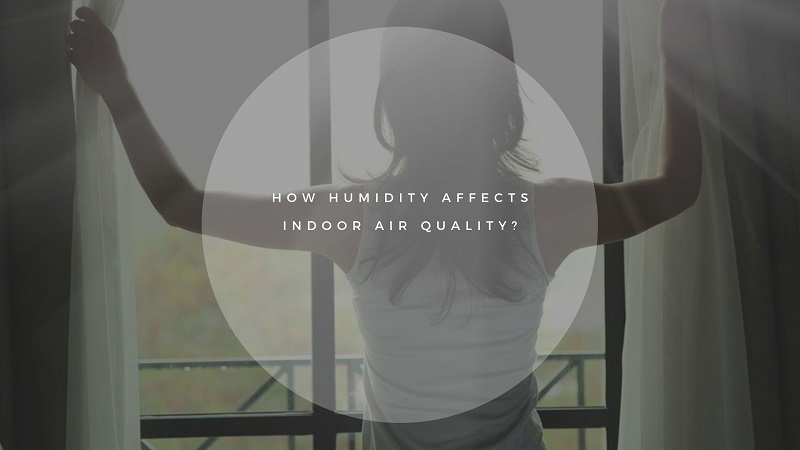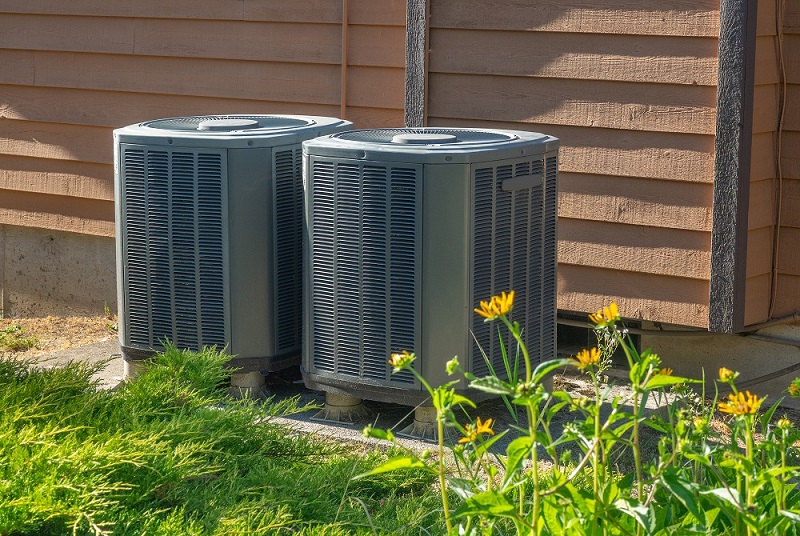Summer season is in its full bloom and HVAC systems have to work hard to maintain the thermal comfort. Things get worse when air is impregnated with a heavy amount of moisture. It gets difficult for us as well as the air conditioners.
No matter which geographical region is your home, humidity levels have a great say in the climate. Every homeowner must strive for a safe and healthy indoor air with recommended humidity levels.
 |
| How Humidity Affects Indoor Air Quality |
You must follow the guidelines provided by HVAC experts for its regular maintenance to keep the thermal comfort. If you are worried about the worn-out units, hire best air conditioning repair in Lakewood CO.
This post will get you through very important questions relating to the humidity levels and HVAC units. First things first, you must be aware of the term “relative humidity” for better understanding.
What is Relative Humidity?
Wikipedia defines relative humidity as “Relative humidity is the ratio of the partial pressure of water vapor to the equilibrium vapor pressure of water at a given temperature.”.
This is a bit difficult to decipher. In simple and easy words, it tells us the measure of water vapors in the air as compared to its moisture-holding capacity. For instance, the relative humidity of 75% means that air is holding three fourth of its capacity. The temperature and pressure significantly affect the amount of water vapor in the air.
Summers And Humidity
As it is already mentioned temperature affects the humidity levels. In summers, higher temperatures cause the air to hold more water. High humidity levels are a serious issue in coastal areas during summers.
Temperatures favor evaporation so the air gets laden with water vapors. It becomes a serious concern to maintain a comfortable humidity level in the indoor air during these months.
How Does Humidity Affects Air Quality?
When the levels go too low or too high, problems arise and living comfort is affected. High moisture content favors the growth of mold and mildew. This is one of the most severe outcomes of high humidity. Mold spores get dispersed in the air and compromise air quality. Spores can be allergic, may worsen the respiratory disorders and can cause skin infections.
You might find wet insulation in your home and rot. Other than AC Installation, dehumidifiers help in getting rid of excess moisture.
Air with low humidity levels can be the reason for cold and coughs. This condition mostly prevails in the cold months of the year. It can cause static electricity, dry and itchy skin. Bacteria and virus thrive to affect sinuses. House paint starts chipping and wood can crack too.
Homeowners install humidifiers to maintain an optimum level of humidity. The nest big question is that what are the optimum levels?
Optimum Humidity Levels
There is no hard and fast rule about the optimum level as it highly depends on the lifestyle of residents. The recommendations for an optimum level lie between 45%-55%. It is the most suitable range for human health.
30%-60% of humidity is considered as “comfortable”. Whereas humidity levels higher than 55% are considered as unhealthy.
Effects Of Humidity Level On Your Health
There are certain illness threats when the indoor air is laden with too much or too low amount of water vapors. The range of 45%-55% discourages the growth of bacteria, viruses, fungi, and mites. It reduces the chances of respiratory infection, asthma, and allergic rhinitis.
Effect Of Humidity Level On HVAC Unit
This might be a bit surprising for you to know that humidity level affects your HVAC unit. HAVC works to maintain a specific temperature ae well as comfortable humidity levels. When the humidity level is too high, the air conditioner works harder to keep air quality as comfortable as possible.
If the unit is old, worn-out or damaged, it fails to perform efficiently. The size of the HVAC unit is another important factor. The wrong size will fail to properly remove the moisture and you will feel warmer.
Managing High Humidity Levels
You must check upon the HVAC unit every summer. Comfortable humidity levels can be achieved by using dehumidifiers in your home. Professional air conditioning installation ensures that you are choosing the right size and model, unique for your needs.
Homeowners living in certain areas with high humidity levels must install dehumidifiers. It is best to look for competent local services to install the dehumidifier on your HVAC unit.
 |
| Air Quality |
You can also buy stand-alone dehumidifiers which are not connected to the air conditioner. A manual humidity level indicator is required so that you may switch on the device when levels are soaring high.
These summers, keep up with your air conditioner repairs by hiring reliable professional services. You can even reduce the electricity bills by keeping a check on humidity.

WOW! Informative article.
ReplyDeleteDoes a dirty chimney can affect on indoor air quality too?
ReplyDeleteI have read many blogs on the net regarding How Humidity Affects Indoor Air Quality but have never come across such a well written article on this topic I am happy to find out such a blog. air conditioning repair service toledo.
ReplyDelete